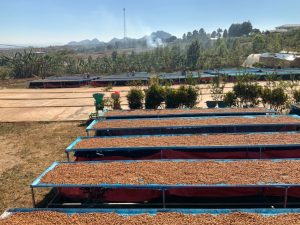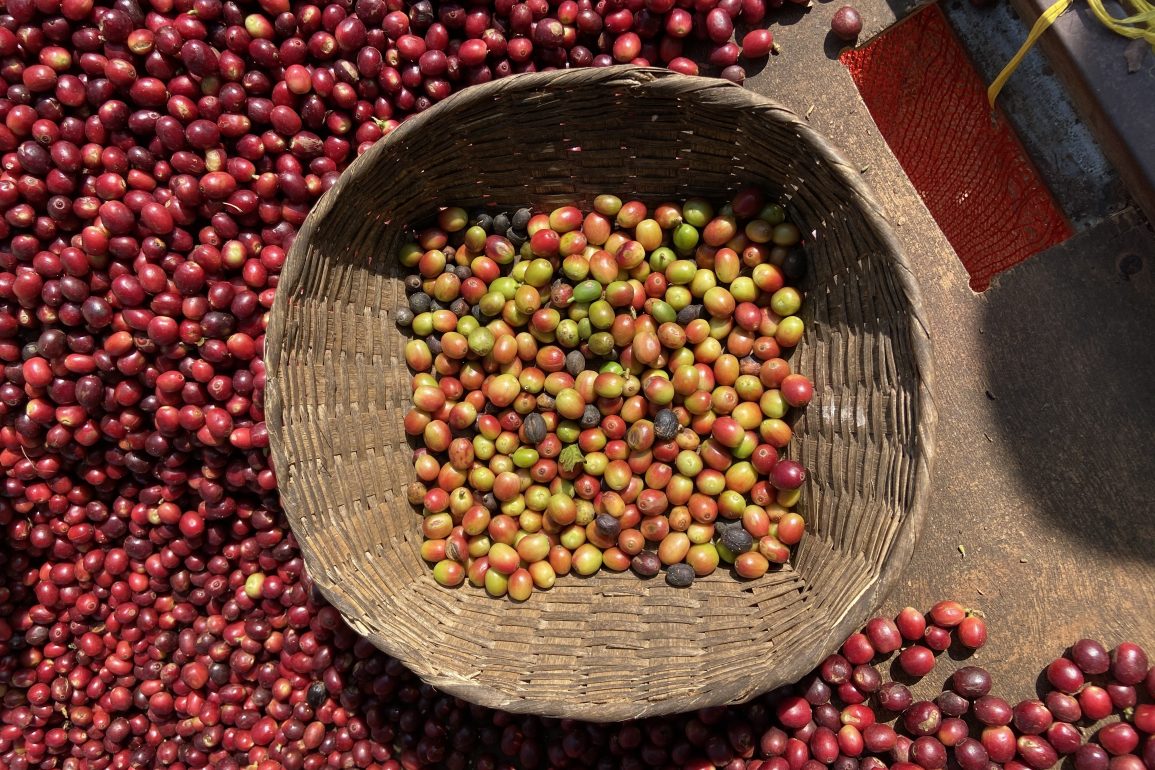Kiss the Hippo Coffee – Known as London‘s most innovative and sustainable speciality coffee company, Kiss the Hippo roast organic, planet-friendly coffee at their state-of-the-art roastery in London, then send it out to discerning coffee drinkers across the UK and beyond.
Before their ethically sourced coffee even arrives in the UK, they are already ensuring it meets their exacting standards of quality and transparency. That’s why they source ethically, opt for organic certified coffee, and build strong relationships with coffee farmers worldwide – paying at least 50% above the Fair-Trade price.
 Women Talking have had the pleasure of trying their unique coffee Myanmar, The Lady. The result of a cooperative made up of 51 female-led farms from Nwar Ban Gyi Village who have pooled their efforts to create a truly delicious roast.
Women Talking have had the pleasure of trying their unique coffee Myanmar, The Lady. The result of a cooperative made up of 51 female-led farms from Nwar Ban Gyi Village who have pooled their efforts to create a truly delicious roast.
Coffee cherries from these farms are collected from Nwar Ban Gyi village and then processed by highly experienced professionals at the fittingly named Lady processing facility, founded in 2018 to support and champion the efforts of female farmers in the Ywangan region, with limited edition lots produced exclusively by women.
Myanmar is a special honey-processed coffee with additional carbonic maceration fermentation, it’s got irresistible tasting notes of redcurrant, caramel, and toasted nuts.
We talk to Kiss the Hippo to find out more about the coffee industry and production.
- Why is/has coffee production been typically male-dominated?
Cultural norms and expectations. In many coffee-producing countries, there are strong cultural norms that dictate that men should be the ones who work in the fields, and women should stay home and take care of the children. These norms can make it difficult for women to get involved in coffee production, even if they want to.
Lack of access to resources. Women in coffee-producing countries often have less access to resources than men, such as land, credit, and training. This makes it more difficult for them to start or expand their coffee farms.
Discrimination. Women in coffee-producing countries can face discrimination from both men and other women. This can make it difficult for them to get involved in the industry and be taken seriously.
- What was the motivation behind the women in Myanmar creating this female cooperative? What have been the challenges they have faced?
They wanted to improve their economic situation. Many of the women were living in poverty, and they saw the cooperative to generate income and improve their lives.
They wanted to gain more control over their lives. In Myanmar, women are often marginalized, and they have little control over their own lives. The cooperative gave them a way to come together and have a voice.
They wanted to empower other women. The women saw the cooperative to empower other women and show them that they could be successful.

How many roles do you have at the facility?
Here’s an explanation of the various stages in which the 50+ members are involved.
Harvesting: A coffee cherry is the fruit of the coffee plant. It is a small, round berry about the size of a grape. The coffee cherry is red, yellow, or orange when ripe. Inside the coffee cherry are two coffee beans. The coffee beans are the seeds of the coffee plant, which we roast and grind to make coffee. The coffee cherries are harvested when they are ripe, usually done by hand. The ripeness of the cherries is determined by their colour and firmness.
Pulping: The coffee cherries are pulped to remove the outer layer called the pulp.
Washing: The coffee beans are washed to remove the mucilage, a sticky substance that coats the beans.
Drying: The coffee beans are dried until they reach a moisture content of 10-12%. The drying process is important because it helps preserve the coffee beans and develop their flavour.
Grading: The coffee beans are graded according to their size, colour, and defects. The grading process ensures that the coffee beans are of the highest quality.
Packing: The coffee beans are packed in bags or containers and shipped to their final destination. The packing process helps protect the coffee beans from damage and keeps them fresh.
- How do coffee blends get their unique flavour?
The type of coffee plant: There are two main types of coffee plants, Arabica and Robusta. Arabica coffee is generally considered to be of higher quality than Robusta, and it has a more complex flavour.
The growing region: The climate, soil, and altitude of the growing region all affect the flavour of the coffee. For example, coffee grown in high altitudes tends to have a more delicate flavour than coffee grown in low altitudes.
The processing method: There are two main methods of processing coffee beans: wet and dry. Wet-processed coffee beans are washed with water to remove the pulp and mucilage, while dry-processed coffee beans are dried with the pulp and mucilage still attached. The processing method affects the flavour of the coffee, with wet-processed coffee beans generally having a fruitier flavour and dry-processed coffee beans generally having a more earthy flavour.
If you are a coffee lover looking for a café for an on-site coffee experience, a takeaway cold brew, coffee bags or coffee pods, or the simplicity of online shopping, Kiss the Hippo pretty much has it covered.
For more information visit Kiss the Hippo here.
Poppy Watt


